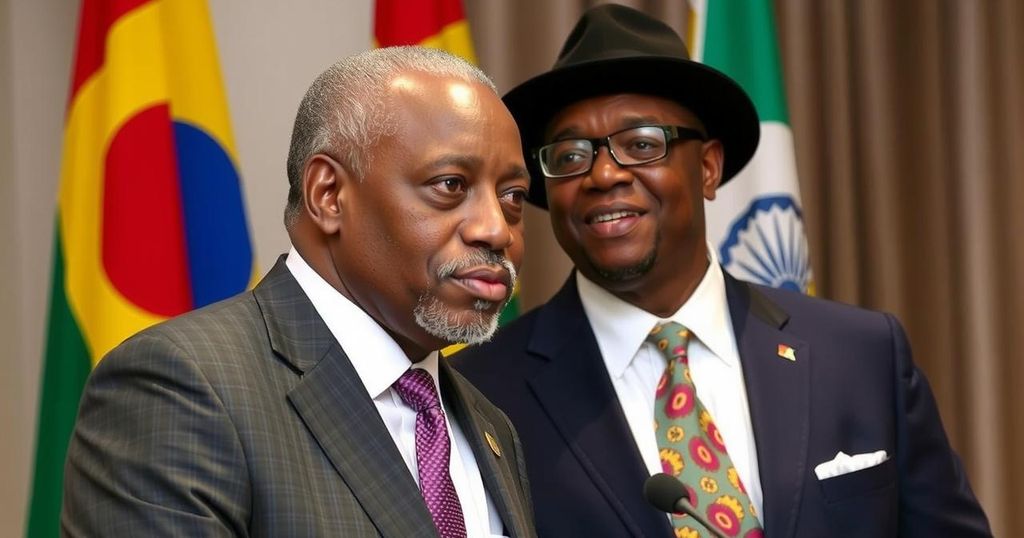Peace talks between Rwanda and the DRC have been abruptly canceled amid escalating tensions and a deadlock over negotiations concerning the M23 rebel group. The Angolan presidency disclosed that planned discussions did not occur as expectations were not met, with fighting intensifying between the DRC army and M23. With millions displaced and humanitarian needs growing, there is a critical need for renewed diplomatic efforts to address this crisis.
Peace talks aimed at addressing the prolonged conflict in the eastern Democratic Republic of the Congo (DRC) have encountered significant challenges, resulting in the cancellation of a critical meeting in Angola. The Angolan presidency announced that expectations for a summit between Rwandan President Paul Kagame and DRC President Felix Tshisekedi were not realized, with no details provided for the sudden cancellation. This breakdown in dialogue comes against a backdrop of escalating tensions, particularly concerning the DRC’s demand to engage directly with the M23 rebel group, which the DRC and the United Nations allege has Rwandan backing.
Following heightened military confrontations between the DRC army and M23 rebels, where allegations of civilian casualties surfaced, hopes for a diplomatic resolution have diminished. The DRC government accused M23 of killing twelve civilians in the eastern Lubero territory, an allegation currently denied by M23 representatives, who characterized it as misinformation from the government. Fighting has intensified amid a protracted humanitarian crisis, with millions displaced throughout the region due to ongoing violence, making dialogue between the nations increasingly urgent.
Historically, the eastern DRC has been marked by instability, with M23 being only one of approximately one hundred armed factions vying for control over rich mineral resources. While Rwanda has consistently denied any active support for M23, it acknowledged the presence of its troops in the DRC, laying claim to a need for security due to perceived threats from the DRC’s military deployments. Despite a purported ceasefire and agreements for the withdrawal of Rwandan forces, recent hostilities have thwarted progress, prompting international concern over the situation.
The east of the Democratic Republic of the Congo is plagued by ongoing violence and humanitarian crises, stemming from various armed groups vying for power and control over valuable mineral resources. M23, a significant player in this conflict, has been associated with Rwanda, heightening tensions between the two nations. As diplomatic efforts wane, the urgency for peaceful resolutions is underscored by the dire humanitarian needs of the local populations, many of whom have been displaced due to continuous fighting. Previous ceasefire agreements and negotiations appear to have faltered, complicating the path toward sustainable peace.
The cancellation of peace talks mediated by Angola signals serious complications in resolving the ongoing conflict in the eastern DRC. Continued military confrontations and demands for direct dialogues with rebel factions have led to a stalemate. With millions affected by the conflict, the immediate need for renewed negotiations remains pressing amidst a deteriorating humanitarian landscape, necessitating concerted efforts from regional and international stakeholders to restore dialogue and peace.
Original Source: www.aljazeera.com






